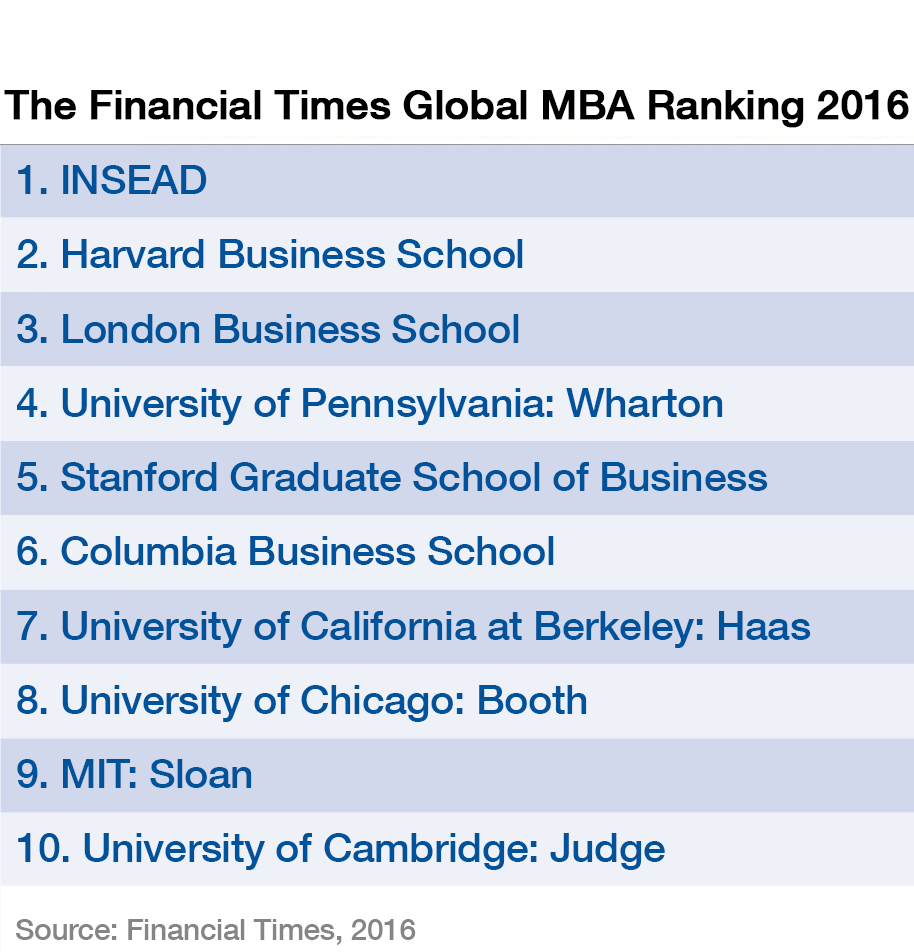These are the world's top business schools in 2016

The number of female MBA students has increased to 35% from 30% in 2005. Image: REUTERS/ Mariana Bazo
For the first time a “one-year” MBA has topped the list of the world’s best business school courses.
Insead has taken the number one spot in the 2016 Financial Times Global MBA Ranking, climbing three places since last year. The institution, which has campuses in France, Singapore and Abu Dhabi, leapfrogged previous title holders Harvard Business School and the London Business School.

In contrast to the other top-ranking schools which all have two-year programmes, Insead’s shorter course means lower fees for students. It is placed in the top 10 for value for money and gives students “most bang for their buck,” as one graduate said to the FT.
Although Insead’s former MBA students do not earn the highest salaries – this goes to graduates of Stanford Graduate School of Business – three years after graduation their pay is up by an average of 96% compared to pre-MBA income.
Carroll School of Management at Boston College has seen the biggest jump, moving 21 places from 93rd to 69th position. Graduates also saw an almost $6,000 average salary increase, and the school saw improved ratings for value-for-money and career progression.
Another one-year course came top for career progression. The Indian Institute of Management in Ahmedabad is widely regarded as the best business school in India and placed 24th overall, according to the FT.
This year’s rankings included nine new schools. The Renmin University of China School of Business is the highest new entry, coming in 43rd. Despite the school offering an MBA programme since 1991, it only became eligible for the ranking in 2010. Students at Renmin can expect a salary increase of 168% following graduation.
What happens to the gender gap after an MBA?
More women are now going to business schools: the number of female MBA students has increased to 35% from 30% in 2005, and exceeds 40% in 27 ranked schools.
Chinese schools have the highest proportion of female students with women accounting for 44% of the overall cohort.
Topping the list for the most gender-equal business school was new entry Renmin University of China School of Business, where women outnumber men.

Leeds University Business School in the UK and Fudan University School of Management in China are the only other institutions where women account for more than half of students.
The FT points out that there is still a way to go to ensure equal gender representation in business schools as women only make up about a quarter of staff.
After graduation from an MBA programme, the average pay gap between men and women actually gets worse, increasing from 14% before an MBA to almost 20%.
This difference could be partly due to the under-representation of women in senior positions. However, the FT notes that the data collected shows a pay gap even within the same sector and at the same level of seniority.
This article has been updated to re-instate a reference to the Indian Institute of Management, Ahmedabad, having a one year programme, which had been incorrectly removed.
Don't miss any update on this topic
Create a free account and access your personalized content collection with our latest publications and analyses.
License and Republishing
World Economic Forum articles may be republished in accordance with the Creative Commons Attribution-NonCommercial-NoDerivatives 4.0 International Public License, and in accordance with our Terms of Use.
The views expressed in this article are those of the author alone and not the World Economic Forum.
Stay up to date:
Gender Inequality
Related topics:
Forum Stories newsletter
Bringing you weekly curated insights and analysis on the global issues that matter.
More on Education and SkillsSee all
Jumoke Oduwole and Abir Ibrahim
November 11, 2025






